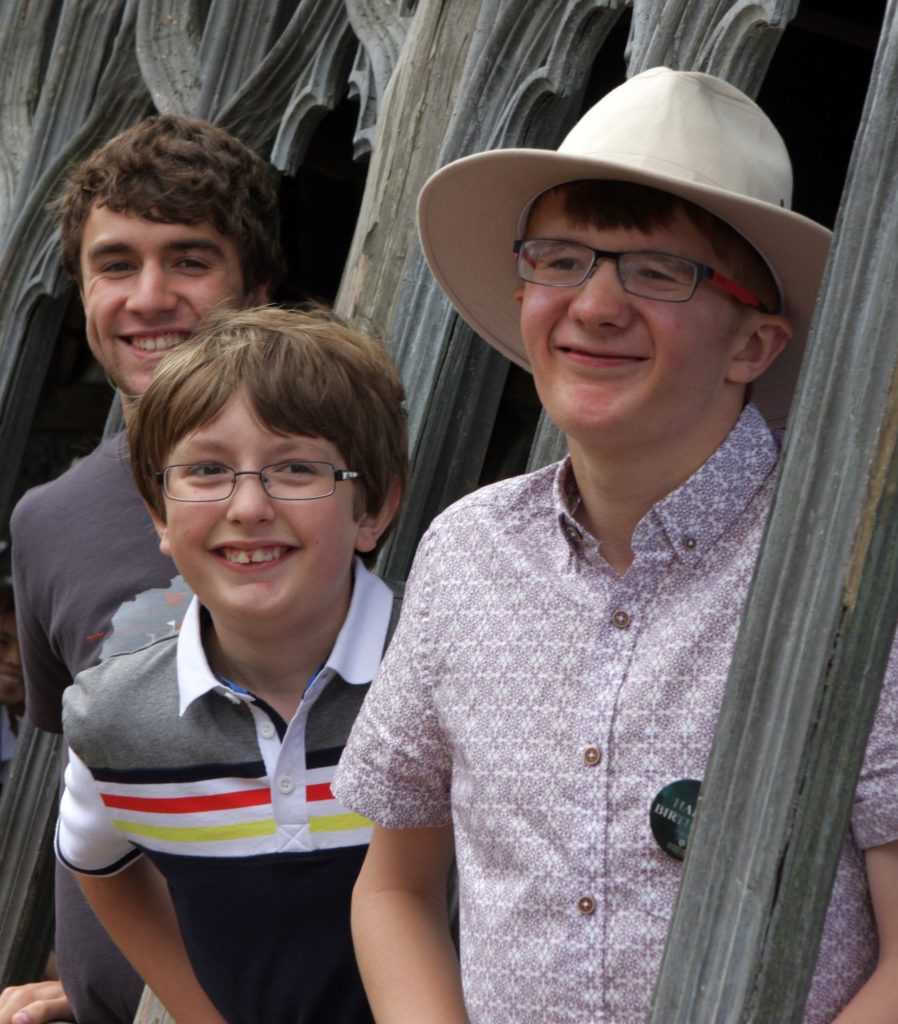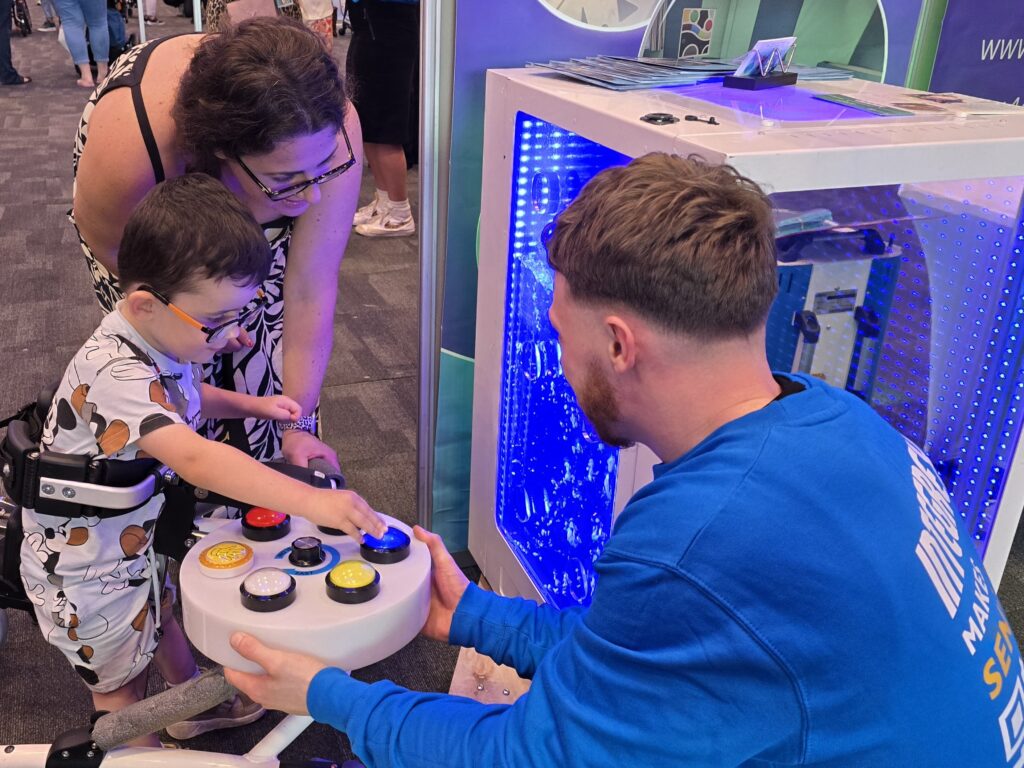Hospitals, mental health & community services (secondary care)
8 mins read
This advice applies across the UK.
Your child might be referred to see health professionals or services with more specialist knowledge. Hospital and community services are often referred to as ‘secondary care’ as you are usually referred to the service having first been seen by another professional such as a GP, doctor or nurse.
In this article
Child and adolescent mental health services (CAMHS) & other support
CAMHS specialise in supporting the psychological and emotional needs of children and young people.
NHS England provides extra support to autistic and learning disabled children experiencing a mental health crisis. This includes measures to keep them safe and out of hospital, or making sure they are supported properly when discharged.
See our webpages on these topics.

Child and adolescent mental health (CAMHS)
CAMHS services offer assessment and treatment for families where children and young people have emotional, behavioural or mental health difficulties.

Mental health, autistic and learning disabled children
The advice on this page applies to England only.
If your child is experiencing a mental health crisis, it’s helpful to know what extra support is available and how to get it
Child development teams/centres
Child development teams are led by paediatricians working closely with physiotherapists, occupational therapists (OTs) and speech and language therapists (SLTs).
They assess and review a child’s needs and devise treatment programmes to encourage and support their development. They might also require input from psychologists in the team from child and adolescent mental health service (CAMHS).
Community nursing
Community children’s nurses support disabled children at home and in community settings. This includes those who are technology-dependant, such as children who need tube feeding and gastrostomy care. They also play an important role in making sure a child’s health needs are supported safely in nursery or school.
Continence service
Local continence services should see children if there are problems with toilet training. Children can usually get free continence equipment once they reach a certain age – typically around four years old.
In some areas, health visitors, community nurses and/or learning disability nurses can prescribe continence equipment. They can also give advice on toilet training.
Guidance from the National Institute of Clinical Excellent (NICE) makes clear recommendations for the management of children with bed-wetting and constipation. But many areas do not have community-based services for children with bladder and/or bowel problems.
Continuing care – for children with complex needs
NHS continuing care is support (a care package) for children and young people under 18 who need tailored care due to their complex health needs. Children who get continuing care will have ongoing needs that a normal GP, hospital or community services can’t meet.
Professionals working with a child or young person should offer them an assessment if it seems they could have continuing care needs. If you think your child should be assessed, talk to a health or social care professional who works with them. They may carry out an initial screening assessment to see if they are likely to be eligible.
They can arrange a holistic assessment, which may include other services such as education and social services. A nominated children and young people’s health assessor leads the assessment process. They might obtain reports from services already involved with your child. The assessment considers what daily support a child might need with:
- Behaviour that challenges.
- Communication.
- Mobility.
- Nutrition, food and drink.
- Continence and elimination.
- Skin and tissue viability.
- Breathing.
- Drug therapies and medicines.
- Psychological and emotional issues.
- Seizures.
You should get a decision about your child’s eligibility within 28 working days of being referred.
In Scotland, assessment needs to take a wider view on the overall needs of the child and family in line with Getting It Right For Every Child (GIRFEC). See more about continuing care in Scotland.
In England, legal responsibility for arranging and funding continuing care for children now sits with the new Integrated Care Systems (ICS). The care can also be provided by local authorities or schools/education. If your child or young person requires ‘continuing care’, provision can be integrated into their education, health and care (EHC) plan if they have one.
We have more information on continuing care in England on our separate webpage.

Continuing care
Continuing care is an NHS-funded care package for children and young people aged under 18 with complex health needs arising from illness or disability.
Dietician
A dietician can advise on food, diet and nutrition. They can help if a child is reluctant to eat certain foods, needs to be on a special diet, or has difficulties chewing and/or swallowing. They are often part of a multidisciplinary health team.
Educational psychologists
Educational psychologists (EPs) assess a child’s learning, usually at school. They provide advice to parents and education staff on appropriate support for learning and behaviour.
If you apply for an education, health and care (EHC) plan in England, the local authority must seek psychological advice and information on your child from an EP along with other health and care professionals. EPs can provide reports as long as they’re under two years old. They will carry out an assessment if they have not assessed your child recently.
Learning disability nurses
If your learning-disabled child needs to go to hospital, ask the hospital if they have a learning disability nurse. This is a specialist nurse who supports people with a learning disability while they are in a hospital to make sure they get good care.
It is important that the nurse meets you and your child as soon as possible after you arrive at or before you go into hospital. This is so the nurse can find out as much as possible about you and understand the help you may need while there.
Learning disability team
Learning disability teams are based in local authorities and work with adults (18+) who have a learning disability and their families.
Some teams are ‘integrated’, which means they have health and care professionals working side-by-side. This includes social workers, psychiatrists, psychologists, physiotherapists, occupational therapists (OTs), speech and language therapists (SLTs) and specialist community nurses.
Access to services is usually via a formal Adult Social Care Assessment and a Learning Disability assessment.
Mental health services and CA.
Occupational therapy
Occupational therapists (OTs) help people manage daily tasks. They focus on hand-eye coordination, perception and manipulative skills. They can advise on help with everyday activities. This includes dressing, toileting, bathing and play for young children and writing skills for older children.
They can also help autistic and other children with sensory regulation and integration by providing a sensory diet.
Paediatrician
A paediatrician is a doctor or consultant who specialises in looking after babies, children and young people. A paediatrician can coordinate and liaise with other agencies involved in your child’s care.
Physiotherapy
A physiotherapist helps in the management and development of movement skills. They can help in various ways by planning exercises to strengthen weak muscles and games to improve coordination and motor skills.
Physiotherapists often work in multidisciplinary teams in hospitals, some GP surgeries, community health centres and clinics. Some can offer home visits.
Speech and language therapy
Speech and language therapists (SLTs) work with children who have difficulties with communication. They help develop the skills needed to communicate, such as attention, listening and interaction.
If a child does not or cannot use speech, SLTs can help them explore other ways to communicate. For example, they might use Makaton signing (a language programme that uses signs and symbols to help people communicate). They can also provide help where there are physical issues with eating, drinking and safe swallowing.
If you’re worried about your child’s speech or language, ask your GP or health visitor, your child’s nursery staff or teacher for a referral to your local speech and language therapy service.
Find out more by visiting I Can’s Talking Point website.
In Scotland, the Speech and Language Communication Company (SLCo) is a charity providing speech and Language support for families.
Wheelchairs and equipment
If your child has mobility difficulties, your GP may refer you to a physiotherapist to assess their mobility needs. As part of the assessment, the physiotherapist will discuss mobility aids that could help your child.
This might be walking aids that you can loan from the local hospital or community health service. Or it might be a wheelchair, buggy or adapted seating from your local NHS wheelchair service. You can get contact details for your local wheelchair service from your GP or physiotherapist.
Wheelchairs for children need regular reviewing to monitor the child’s growth and make sure it is providing good postural support.
Whizz-Kidz can provide children under 18 with mobility equipment that’s not available from the NHS. They also offer wheelchair skills training. Go Kids Go! also provides free wheelchair skills courses.
If your child gets the high rate mobility component of Disability Living Allowance, you can apply to the Motability scheme to buy a powered wheelchair or buggy.
Related information

Speech, learning and movement
Is your child slow to understand simple words, do they use few words, or have difficulty making certain sounds compared with other…
Read more
Aids & equipment
Caring for a disabled child can sometimes become easier with the use of certain aids and equipment. Getting the right equipment early…
Read more
Feeding and eating
Learn about the reasons your child might be having difficulty eating and find out what you can do to address common issues.
Read more